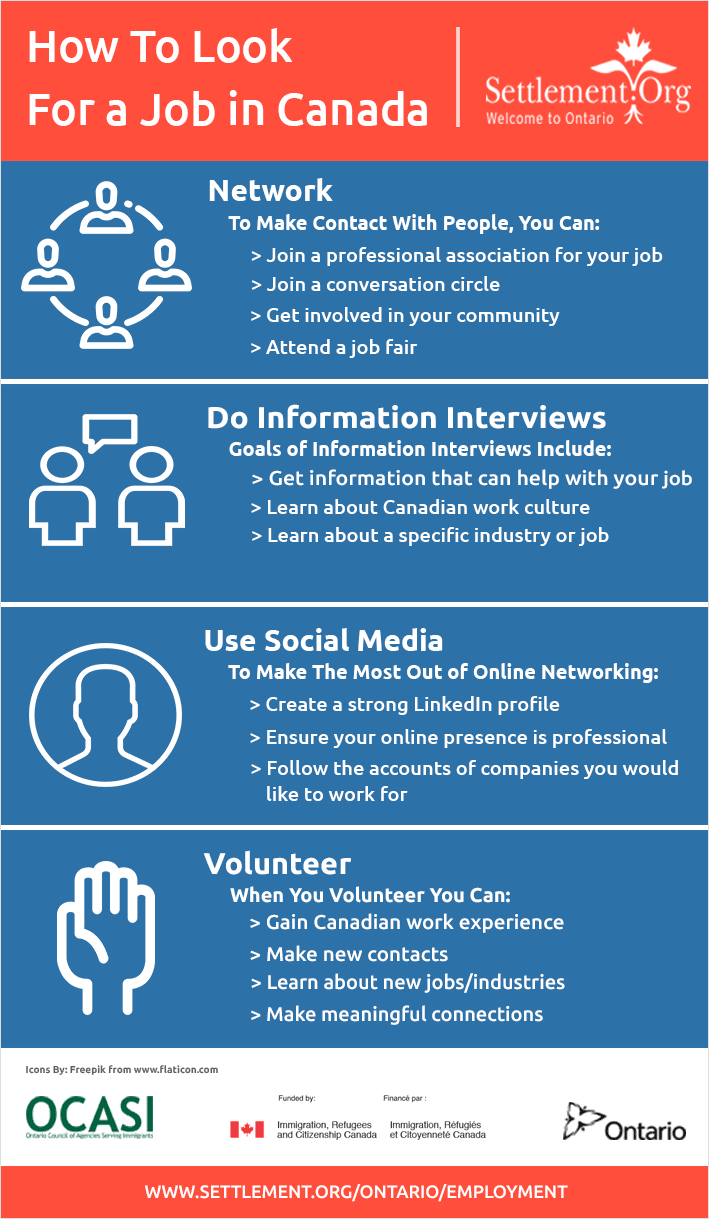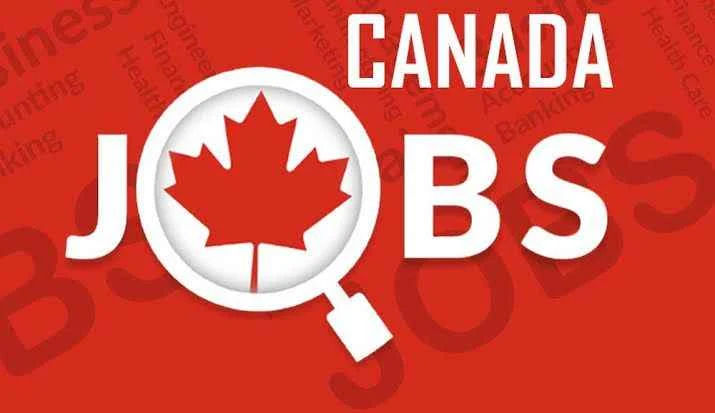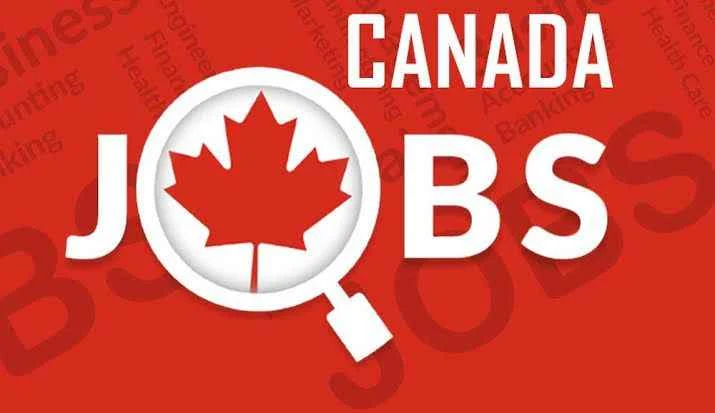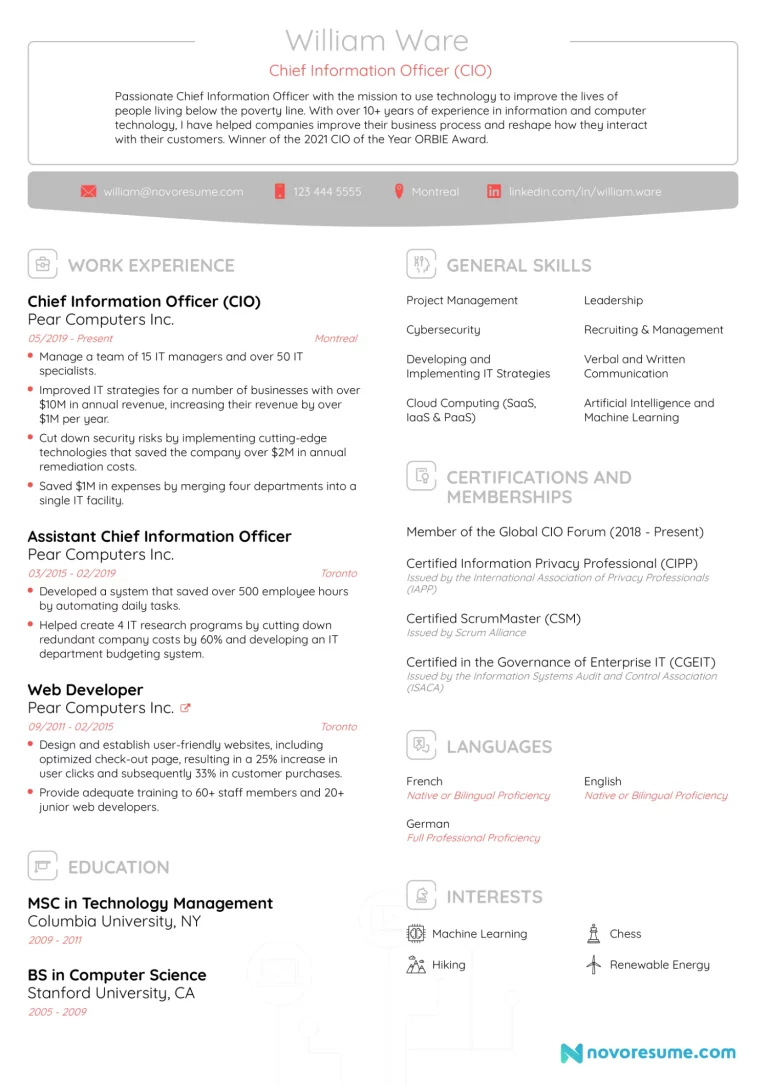How To Find A Job In Canada?
Are you considering a move to Canada and wondering how to find job opportunities in this vast country? Look no further! This article will provide you with valuable tips and strategies on how to navigate the Canadian job market. From updating your resume to networking effectively, we’ve got you covered. So, let’s get started on your journey to finding a job in Canada!

1. Research Canada’s Job Market
Whether you are a newly arrived immigrant or a foreign worker looking to find a job in Canada, it is crucial to understand the Canadian job market. Taking the time to conduct thorough research will not only give you a better understanding of the job market but also help you strategize your job search effectively.
1.1 Understand the Canadian job market
Before diving into your job search, it is essential to have a clear understanding of the Canadian job market. Familiarize yourself with the economic landscape, industry trends, and the type of jobs available in Canada. This knowledge will enable you to identify potential opportunities and align your skills and qualifications with the market demand.
1.2 Explore in-demand industries and occupations
Certain industries and occupations are in high demand in Canada. It is beneficial to explore these sectors as they often offer more job opportunities and better prospects for career growth. Industries such as healthcare, information technology, engineering, and skilled trades have a continuous need for qualified professionals.
1.3 Analyze Canada’s regional job market
Canada’s job market can vary significantly from region to region. It is essential to analyze the job market in the specific region where you intend to work or reside. Look for regional employment trends, key industries, and major employers. This information will help you target your job search efforts towards regions with better job prospects in your field.
1.4 Identify potential employers
Research and identify potential employers in your desired industry and region. Look for companies that align with your skills and experience. It is always beneficial to have a targeted approach in your job search, as it allows you to tailor your applications and demonstrate your knowledge and enthusiasm for the specific company and role.
2. Improve Your Language Skills
Proficiency in English or French is crucial for finding a job in Canada. Strong language skills not only enhance your employability but also enable effective communication in the workplace.
2.1 Language proficiency requirements
Understand the language proficiency requirements for your desired job or occupation. Some professions have specific language requirements mandated by regulatory bodies. Assess your language skills and determine if you need to enhance them to meet the desired level of proficiency.
2.2 Enhancing language skills through courses and certifications
Consider enrolling in language courses or certifications to improve your language skills. Language learning programs, both online and offline, are widely available and can help you develop fluency in your chosen language. Additionally, language certifications such as IELTS or CELPIP can provide validation of your language proficiency to potential employers.
2.3 Practicing language skills in everyday life
Improve your language skills by immersing yourself in an English or French-speaking environment. Engage in everyday conversations, listen to podcasts, watch movies, and read books in the language you are trying to improve. This continuous practice will help you become more comfortable and confident in your language proficiency.
2.4 Language proficiency tests
If required, prepare for language proficiency tests such as IELTS or CELPIP. These tests assess your language abilities in different areas such as reading, writing, speaking, and listening. Familiarize yourself with the test format, practice sample questions, and seek guidance from language instructors or online resources to perform well in these tests.

3. Assess Your Qualifications and Credentials
It is essential to assess the equivalency of your international qualifications and have them recognized in Canada.
3.1 Equivalency of international qualifications
Determine if your educational qualifications, such as degrees, diplomas, or certificates, are recognized in Canada. Research the designated organizations responsible for assessing foreign credentials in your field. These organizations will evaluate your qualifications and provide an assessment report that indicates how your qualifications align with Canadian standards.
3.2 Recognition of professional credentials
If you have professional credentials or certifications from your home country, research the regulatory bodies or professional associations in Canada. Verify if your credentials are recognized or if you need to undergo a certification process to practice your profession in Canada. Understanding the recognition process will help you navigate any necessary steps to ensure your qualifications are valid in the Canadian job market.
3.3 Translating and validating documents
If your credentials or supporting documents are in a language other than English or French, you may need to have them translated by a certified translation service. Translated documents should be valid and accurate representations of your original documents to ensure their acceptance by Canadian employers and regulatory bodies.
3.4 Bridging programs and additional training
Consider enrolling in bridging programs or additional training to bridge any gaps between your international qualifications and Canadian requirements. These programs are designed to provide newcomers with the necessary skills and knowledge to integrate into the Canadian job market successfully. They can also help you gain Canadian work experience, which is highly valued by employers.
4. Understand the Canadian Work Permit Process
If you are not a Canadian citizen or permanent resident, you will need a work permit to legally work in Canada. Understanding the work permit process is crucial for securing employment in the country.
4.1 Determine your eligibility for a work permit
To be eligible for a work permit, you need to meet certain criteria, such as having a valid job offer from a Canadian employer, possessing the necessary qualifications and experience for the position, and demonstrating that you will leave Canada once your work permit expires. Familiarize yourself with the eligibility requirements and determine if you meet the criteria.
4.2 Different types of work permits in Canada
Canada offers different types of work permits, including employer-specific work permits, open work permits, and work permits under international agreements. Each type of work permit has its own set of criteria and restrictions. Research the various work permit options to determine which one is suitable for your situation.
4.3 Applying for a work permit
Once you have determined your eligibility and identified the appropriate work permit, you can start the application process. Read the application guidelines and ensure that you provide all the required documents, such as a job offer letter, proof of qualifications, and evidence of language proficiency. Pay attention to the application deadlines and processing times to ensure a smooth application process.
4.4 Work permit processing times and fees
Work permit processing times can vary depending on multiple factors, including the type of work permit and the country of application. Familiarize yourself with the estimated processing times to manage your expectations accordingly. Additionally, be aware of the fees associated with work permit applications and factor them into your financial planning.

5. Networking and Job Search Strategies
Building a professional network and utilizing effective job search strategies can significantly increase your chances of finding employment in Canada.
5.1 Building a professional network in Canada
Networking plays a crucial role in job search success. Attend industry events, join professional associations, and connect with individuals in your desired field. Networking allows you to expand your contacts, gain valuable insights, and potentially uncover hidden job opportunities. Utilize online platforms such as LinkedIn to connect with professionals in your industry.
5.2 Using online job search platforms
Make use of online job search platforms to explore and apply for job opportunities in Canada. Platforms like Indeed, Glassdoor, and Monster are popular for job seekers and employers alike. Customize your search by location, industry, and job type to narrow down your options and find relevant positions.
5.3 Leveraging industry-specific websites and forums
Explore industry-specific websites and forums that cater to your desired field. These platforms often have job boards and discussions that can provide valuable information about the job market and potential employers. Participate in online discussions, ask questions, and engage with professionals in your field to expand your network and knowledge.
5.4 Attending job fairs and professional events
Job fairs and professional events offer excellent opportunities to connect with employers, learn about job openings, and make a memorable impression. Research upcoming job fairs and events in your area and prepare your resume and elevator pitch. Dress professionally and approach recruiters with confidence and enthusiasm.
6. Create a Compelling Resume and Cover Letter
A well-crafted resume and cover letter are essential to make a positive impression on potential employers.
6.1 Tailoring your resume to Canadian job standards
Adapt your resume to Canadian job standards by highlighting your relevant skills, experiences, and achievements in a format that aligns with Canadian preferences. Use clear and concise language, include keywords from job postings, and quantify your accomplishments whenever possible.
6.2 Highlighting relevant skills and experiences
Tailor your resume to emphasize the skills and experiences that are most relevant to the job you are applying for. Focus on transferable skills and highlight any Canadian work experience or training you have attained. This will demonstrate to employers that you understand the Canadian job market and are well-suited for the role.
6.3 Writing an effective cover letter
Craft a compelling cover letter that showcases your motivation, qualifications, and fit for the position. Address the specific requirements of the job, company, and industry while demonstrating your enthusiasm and passion. Personalize each cover letter for the specific job application to make a strong impression.
6.4 Formatting and proofreading your application documents
Ensure that your resume and cover letter are well-formatted, error-free, and visually appealing. Use consistent fonts and styles, pay attention to grammar and spelling, and proofread your documents multiple times. A polished and professional application will make you stand out in a competitive job market.

7. Prepare for Job Interviews
Preparing for job interviews is crucial to present yourself effectively and confidently.
7.1 Researching the company and position
Thoroughly research the company, its values, products or services, and recent news. Familiarize yourself with the position requirements and responsibilities. This knowledge will enable you to speak knowledgeably about the company during the interview and demonstrate your genuine interest in the role.
7.2 Understanding common interview questions in Canada
Prepare for common interview questions that are often asked in the Canadian job market. Practice your responses and ensure you can effectively communicate your skills, experiences, and achievements. Be prepared to provide specific examples that demonstrate your abilities and problem-solving skills.
7.3 Practicing interview techniques and etiquette
Practice your interview techniques and etiquette to build confidence and composure. Conduct mock interviews with friends or utilize online resources to simulate actual interview scenarios. Pay attention to your body language, eye contact, and tone of voice. Demonstrate professionalism, active listening, and effective communication skills throughout the interview.
7.4 Dressing professionally and demonstrating confidence
Dress professionally for the interview, considering the company’s dress code and industry norms. It is better to be slightly overdressed than underdressed. Walk into the interview room with confidence, a warm smile, and a firm handshake. Project your enthusiasm and demonstrate that you are the right fit for the position through your demeanor and responses.
8. Develop a Job Search Action Plan
Creating a job search action plan will help you stay organized, motivated, and focused throughout your job search journey.
8.1 Setting realistic goals and objectives
Set realistic goals and objectives for your job search. Identify the number of applications you aim to submit each week, the number of networking events you plan to attend, and the timeline for securing a job. Break down your goals into smaller, achievable tasks to keep yourself accountable.
8.2 Creating a schedule and tracking progress
Create a schedule that outlines your daily or weekly job search activities. Allocate time for researching opportunities, submitting applications, networking, and enhancing your skills. Track your progress by keeping a record of the applications you have submitted, the networking events you have attended, and any feedback you receive from employers.
8.3 Utilizing job search resources and tools
Utilize job search resources and tools to streamline your job search process. Online job boards, professional networking platforms, and recruitment agencies can provide valuable assistance in connecting you with potential employers. Research the resources available in your industry and leverage them to enhance your job search strategies.
8.4 Evaluating and adjusting your strategies
Regularly evaluate the effectiveness of your job search strategies and make necessary adjustments. If certain strategies are not yielding results, consider exploring different approaches or seeking guidance from career counselors or employment agencies. Flexibility and adaptability are key when navigating the job market.
9. Utilize available Government Resources
The Government of Canada offers various resources and services to support job seekers.
9.1 Government of Canada’s job search platforms
Explore the Government of Canada’s job search platforms such as Job Bank and Workopolis. These platforms provide access to job postings, resume builders, and tools for exploring in-demand occupations and industries. Take advantage of these resources to broaden your job search and stay updated on the latest opportunities.
9.2 Employment and Career Planning Services
Government-funded employment and career planning services can offer guidance and support throughout your job search journey. These services provide assistance with resume writing, interview preparation, job matching, and career counseling. Connect with these services to access personalized support and advice.
9.3 Researching labour market information
Access labour market information provided by the Government of Canada to gain insights into job trends, wage rates, and employment outlook in specific regions and industries. This information can help you make informed decisions about your career path and identify areas with higher job demand.
9.4 Accessing settlement services for newcomers
As a newcomer to Canada, take advantage of settlement services offered by various organizations. These services provide support in areas such as language training, cultural orientation, job search assistance, and connecting with other newcomers. Leveraging these resources will help you navigate the settlement process and integrate into the Canadian job market.
10. Adapt and Optimize Your Job Search Approach
Flexibility and continuous learning are key when searching for a job in Canada.
10.1 Being flexible in job preferences
Be open to exploring different job opportunities and be flexible with your job preferences. Consider entry-level positions or jobs that may not align precisely with your previous experience. Gaining Canadian work experience and building a network within your desired industry can open doors to more suitable positions in the future.
10.2 Upskilling and continuous learning
Invest in continuous learning and upskilling to stay competitive in the Canadian job market. Identify any gaps in your skills or knowledge and seek opportunities to bridge them. Take online courses, attend workshops or seminars, and stay updated on industry trends and advancements. Professional development enhances your employability and demonstrates your commitment to continuous growth.
10.3 Volunteering and gaining Canadian experience
Consider volunteering or participating in unpaid internships to gain Canadian work experience. Volunteering not only allows you to contribute to the community but also provides an opportunity to showcase your skills and make valuable connections. Canadian experience is highly valued by employers, and volunteering can be a stepping stone to paid employment.
10.4 Seeking assistance from employment agencies
Consider reaching out to employment agencies that specialize in placing job seekers in specific industries or professions. These agencies have established connections with employers and can assist you in finding suitable job opportunities. They can also provide guidance on your resume, interview preparation, and other aspects of the job search process.
In conclusion, finding a job in Canada requires thorough research, continuous learning, adaptability, and resourcefulness. By understanding the job market, improving language skills, enhancing qualifications, utilizing available resources, and employing effective job search strategies, you can increase your chances of securing meaningful employment in Canada. Remember to remain persistent, stay positive, and leverage your unique skills and experiences to stand out in the competitive Canadian job market. Good luck!







